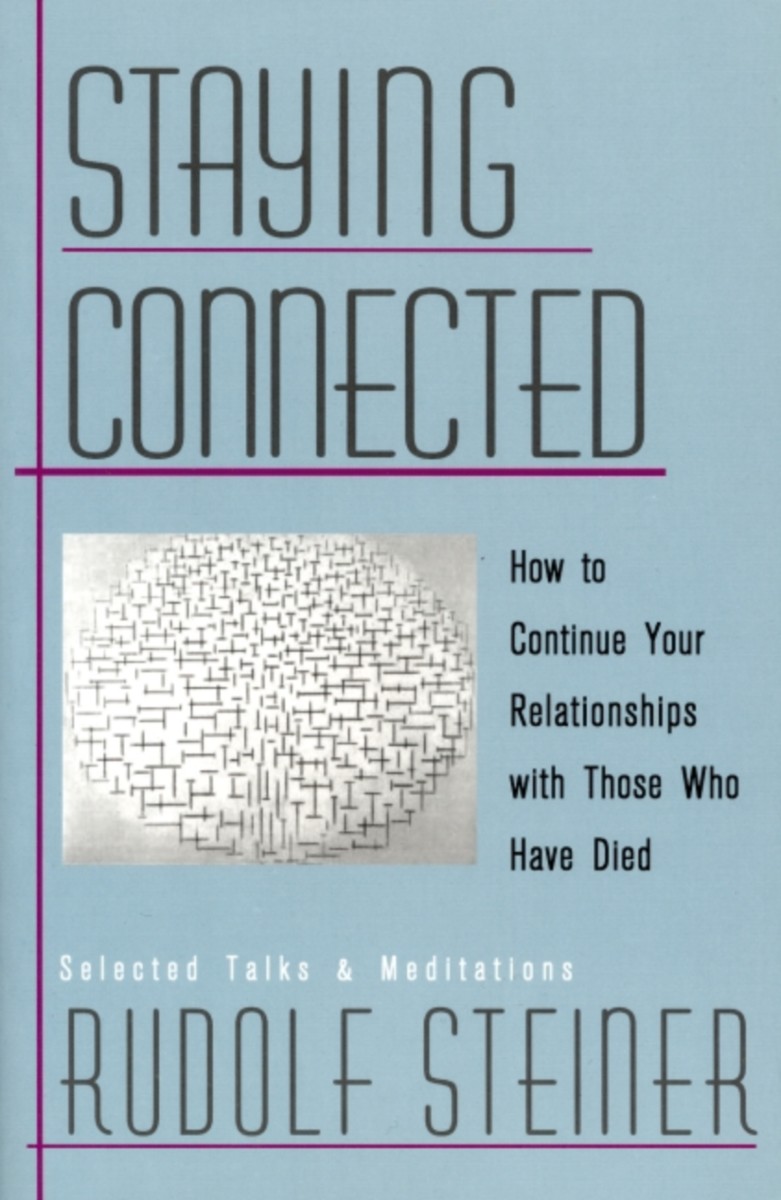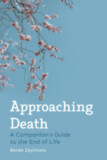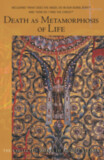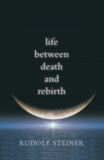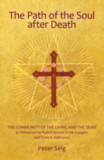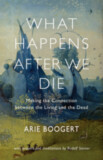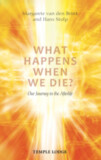Staying Connected
How to Continue Your Relationships with Those Who Have Died
- Publisher
SteinerBooks - Published
1st November 1999 - ISBN 9780880104623
- Language English
- Pages 288 pp.
“This is what it comes down to: that we learn to experience that those who have passed through the gate of death have only assumed another form. Having died, they stand before our feelings like those who, through life experiences, have traveled to distant lands, whither we can follow them only later. We have therefore nothing to fear but a time of separation. Spiritual science must help us learn to feel and experience this in the most living way we can.” — Rudolf Steiner
“Living and working with the concepts and exercises in these talks and meditations has changed my life. This is a most practical book. Do what it recommends and you will experience the presence of the dead in your lives. You will know that the community of human beings on both sides of the threshold is not theory, but reality.” — Christopher Bamford (from the introduction)
The idea of “working with the dead”—maintaining, continuing, and enhancing one’s relationships with those who have died—was fundamental to Steiner’s work. This volume collects a rich harvest of his thoughts on the subject, gathered over many years. Steiner spoke directly from his own experience and formulated various meditation practices and verses that worked for him.
We learn the usefulness of reading to the dead; the use of verbs (rather than nouns) when we speak with them; the importance of the sacred moments when falling asleep and awakening for asking questions and receiving answers; how our memories of the dead are like “art” to them; and of key moods we must cultivate—community with the world, gratitude, confidence in the current of life.
We learn, too, of the many ways discarnate souls can help us in our earthly work, and of the many ways we can help them. Also included are many of the mantras Steiner gave to his students for connecting with those who have died.
This important volume will help those who want to deepen their relationships to the living, to those who have died, or to the spiritual world itself.
C O N T E N T S:
Introduction by Christopher Bamford
Part 1: “Entry”
Overcoming the Abyss
The Life of the Dead
Recovering the Connection
The Presence of the Dead
The Blessings of the Dead
Works of Art, Acts of Grace
Part 2: “Practice”
How the Dead Influence the Living
The Dead Are Always with Us
Uniting with the Universal Spirit
The Feeling of Community and the Experience of Gratitude
Trust in Life and the Rejuvenation of the Soul
The Language of the Heart
Momento Mori
Part 3: “Experience”
First Experience with the Dead
An Example of Working with the Dead
Advice on Meditation
The Importance of Self-Knowledge in the Life after Death
Meditations
Coda: The Dead Speak
Rudolf Steiner
Rudolf Steiner (b. Rudolf Joseph Lorenz Steiner, 1861–1925) was born in the small village of Kraljevec, Austro-Hungarian Empire (now in Croatia), where he grew up. As a young man, he lived in Weimar and Berlin, where he became a well-published scientific, literary, and philosophical scholar, known especially for his work with Goethe’s scientific writings. Steiner termed his spiritual philosophy anthroposophy, meaning “wisdom of the human being.” As an exceptionally developed seer, he based his work on direct knowledge and perception of spiritual dimensions. He initiated a modern, universal “spiritual science” that is accessible to anyone willing to exercise clear and unbiased thinking. From his spiritual investigations, Steiner provided suggestions for the renewal of numerous activities, including education (general and for special needs), agriculture, medicine, economics, architecture, science, philosophy, Christianity, and the arts. There are currently thousands of schools, clinics, farms, and initiatives in other fields that involve practical work based on the principles Steiner developed. His many published works feature his research into the spiritual nature of human beings, the evolution of the world and humanity, and methods for personal development. He wrote some thirty books and delivered more than six thousand lectures throughout much of Europe. In 1924, Steiner founded the General Anthroposophical Society, which today has branches around the world.


